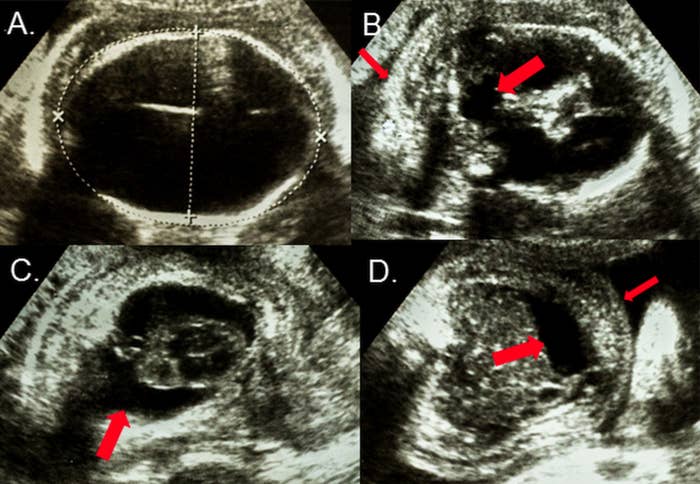
An international medical team reported on Thursday that a stillborn fetus in Brazil was infected with Zika virus and had birth defects in the abdomen, never before connected to the disease.
The Zika virus has infected more than a million Brazilians in the last year, by official estimates, and has spread to more than two dozen countries. The World Health Organization in January declared a public health emergency over thousands of Brazilian infants born with microcephaly — a severe birth defect that causes a shrunken skull and brain — in the wake of the virus outbreak last year.
A team led by Manoel Sarno of Hospital Geral Roberto Santos in Bahia, Brazil, now reports the case of a 20-year-old pregnant woman whose stillborn fetus had not only microcephaly, but swollen pockets of fluid in the abdomen.
It’s the eighth documented case in Brazil of miscarried fetuses or infants with microcephaly who died shortly after birth and had Zika virus in their brains. But only the new, eighth case showed birth defects outside the brain or nervous system.
“Zika virus may cause damage to tissues in addition to the central nervous system,” study co-author Albert Ko of Yale University told BuzzFeed News by email. But, he added, “this is a single case report, so although it suggests that this may be a possibility, we can not access the risk in the general population of pregnant women.”
The unidentified woman from the city of Salvador, Brazil, did not have any Zika virus symptoms during her pregnancy, nor did she test positive for dengue or other diseases linked to birth defects. Although earlier tests had shown no problems, an ultrasound test in her 18th week of pregnancy revealed her fetus was severely underweight. Further observations revealed microcephaly and brain damage. The fetus died 14 weeks later.
Testing revealed Zika virus in the fetus's brain, but not in any other tissues. However, the female fetus also had abnormal accumulation of fluid in the abdomen, a birth defect seem more often in stillbirths triggered by infections with other viruses, and in past decades, a mismatch between the blood types of mother and child.
“I think this is an important report, and what it most probably speaks to is the impact of an earlier infection with Zika on a pregnancy,” Neil Silverman of the Center for Fetal Medicine and Women’s Ultrasound in Los Angeles told BuzzFeed News. In other diseases linked to stillbirths, an infection can cause inflammation of the fetal heart, liver, and other tissues that produce the kind of fluid swelling seen in the new case report.
“What we might be seeing is a Zika infection that overwhelms the brain and causes inflammation in other tissues throughout the body,” Silverman said.
While recent reports have confirmed that the Zika virus can be sexually transmitted, Ko said the woman at the center of the new study most likely acquired her case by a mosquito bite (the primary means of infection worldwide) during pregnancy, rather than at the fetus’s conception, given the early normal ultrasounds.
The report adds to the urgency for studies monitoring the health of pregnant women in Zika outbreak-affected nations, more than two dozen in the Americas, infectious disease specialist Jesse Goodman of Georgetown University Medical Center told BuzzFeed News. “We’re so early in our understanding of this virus, which really seems to have horrible consequences.”
